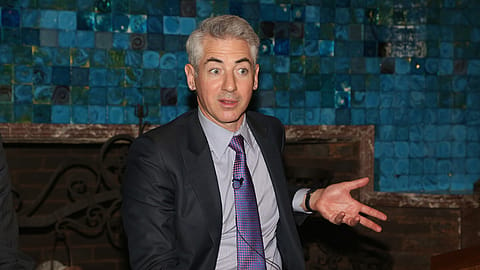Hedge fund manager Ackman backs Hindenburg report against Adani
Well-known hedge fund manager believes research is as credible as his own campaign against Herbalife.

Well-known hedge fund manager Bill Ackman, CEO of Pershing Square, has come in support of Nathan Anderson, the 38-year-old founder of Hindenburg Research, whose scathing research report has wiped off $50 billion of Adani group's market cap since its release on January 24.
Ackman backed a report from the New York-based activist short-selling firm founded by reflecting on his own short-selling strategy against Herbalife Nutrition, terming the company as an illegal pyramid scheme. Ackman's tweet highlighted similarities between the Adani Group's response and Herbalife's response to a damning 350-page presentation made by Pershing Square. Though Pershing was unsuccessful even as it went short over a five-year period between 2012 and 2017 and ended up causing a huge loss to Ackman, the hedge fund manager continues to hold his view even today that Herbalife is a pyramid scheme.
"Adani's response to Hindenburg's report is the same as Herbalife's response to our original 350-page presentation. Herbalife remains a pyramid scheme. I found the Hindenburg report highly credible and extremely well-researched. Adani Group's response speaks volumes," Ackman tweeted. However, Ackman mentioned that his fund has neither gone long or short in any of the Adani group companies or Herbalife. He mentioned that readers should regard his tweets as his judgment on the report rather than an investment advice.
Since the release of the report, shares at the group's flagship Adani Enterprises plunged by over 20%, knocking off more than 20% from Gautam Adani's net worth.
Hindenburg Research has maintained that its report is credible and has dared Adani to file a suit in the US where the firm operates. "We have a long list of documents we would demand in the legal discovery process," Hindenburg said in a statement on January 26.
Meanwhile, as per Bloomberg, eight notes issued by Adani Group were trading lower in Hong Kong, with losses ranging from 0.3 cents to about 5 cents on the dollar. While Indian banks hold a chunk of the group's ₹2 lakh crore debt, dollar and rupee bonds make up for 8% and 29%, respectively.